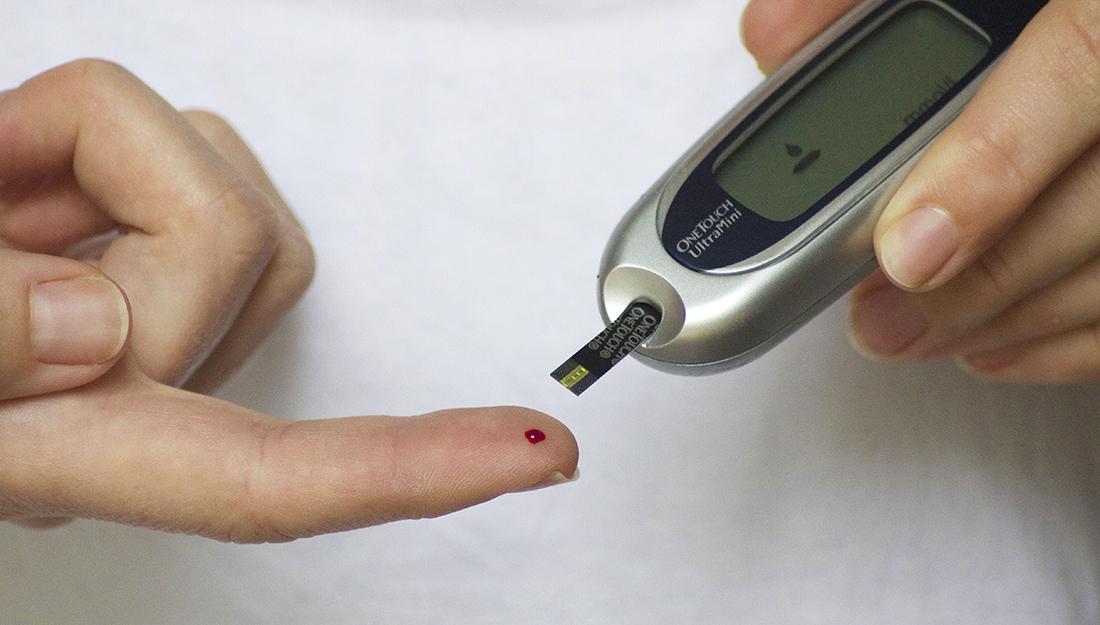- Dominic Hernandez
- Community, Healthy Living, Medicine, Show on VR homepage, Trending
Combating type 1 diabetes with a healthy, balanced diet
A diabetes expert explains why a low-carb diet for type 1 diabetes patients can be problematic later in life

For people living with type 1 diabetes, a healthy diet is more than just trying to follow a new year’s resolution—it’s what keeps them from having a health emergency. Although many health care providers recommend a meal plan that is based around counting carbohydrates, because they have the biggest impact on blood glucose, a recent study went even further and suggested that a low-carbohydrate diet resulted in “exceptional” blood sugar control. A low-carb, high-protein diet is an option for managing type 1 diabetes, but an expert from the Texas A&M Coastal Bend Health Education Center explains why it likely won’t be the standard any time soon.
What is type 1 diabetes?
One important aspect of the highly cited study is that it involved only children with type 1 diabetes, an autoimmune condition where the body does not produce insulin. It did not study the far more common type 2 diabetes, which more often affects adults who produce insulin, but whose bodies are resistant to insulin and do not move glucose into the cells for absorption.
“Type 1 diabetes is called juvenile diabetes because it is usually diagnosed in younger children, and we don’t know the exact cause. We do know animal proteins change gut flora and increase inflammation, which provokes an immune response,” said Sidney Ontai, MD, medical director of the diabetes education staff at the Texas A&M Coastal Bend Health Education Center. “It is sensitization of the immune system, through mechanisms not entirely understood, which causes destruction of the pancreas and its insulin-producing capability.”
Most people consume animal proteins without harm, but if they suffer an attack on their pancreas, people with type 1 diabetes must take insulin and live a healthy lifestyle that usually requires complex carbohydrates—such as peas, beans and whole grain—that don’t spike their blood sugar.
Although eating fewer refined carbohydrates is important, most physicians don’t recommend cutting the carbs completely. “A low-carb diet is not something we’d typically recommend for patients,” Ontai said. “When people do low-carb diets, they are eating high amounts of red meats, meaning any mammalian muscle meat, and these have their own health risks.”
Diet and type 1 diabetes
While red meat has been a centerpiece for the All-American dinner, it has had a bad—and deserved—reputation when it comes to health. Red meat has been linked to multiple health problems, including colon cancer, kidney failure and heart disease.
“A high-protein/low-carb diet can manage blood sugar levels well, but the big reason we don’t recommend it is that the number 1 cause of death in adults is heart attacks and number 2 is cancer,” Ontai said. “People with diabetes get more heart attacks, strokes and cancer, which usually takes several decades to develop. Animal protein also increases insulin resistance and is associated with increased risk of type 2 diabetes. Numerous studies and meta-analyses (studies of studies) show those who eat more whole plants, and less meat, live longer.”
However, a low-carb diet could help in the short term because processed carbohydrates cause a rapid, large increase in blood sugar.
“A low-carb diet can be beneficial by clearly improving blood sugar in diabetes,” Ontai said. “People with type 1 diabetes are already taking insulin, and by limiting processed carbohydrates, blood sugar often become much easier to control.”
People with type 1 diabetes can additionally develop type 2 diabetes and become insulin resistant, so it’s important to follow a healthy lifestyle and lower the risk of type 2 diabetes. Instead of a low-carbohydrate diet, Ontai recommended a whole plant-based diet that focused on fruits, legumes and vegetables. These foods are slowly absorbed into the blood system and usually do not cause a spike in blood sugar.
“There’s no one diet that that’ll be perfect for everybody,” Ontai said. “Low-carb, Paleolithic and Atkin’s diets will help some, but not all. Limiting consumption of animal products have been shown to improve life expectancy in many population studies.”
What to avoid
An important question regarding optimal diets is whether animal protein should be the focus. Although consumption of animal products may not have ill effects on Type I diabetics in the short term, Ontai worries about the long-term health risks. However, there is very little debate and general agreement on several food categories that should be a “red light” for people with diabetes.
“Simple carbohydrates are problematic and should not be eaten by diabetics because they quickly spike blood sugar and cause weight gain and inflammation,” Ontai said. “Avoid soft drinks, white bread, table sugar, cakes and candy. Have plenty of green vegetables, and limit the amount of starches on your plate.”
Media contact: media@tamu.edu


